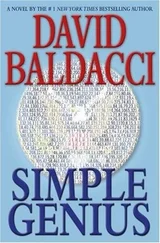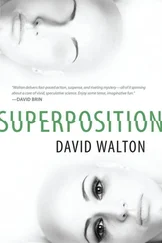All of this work had been done before, with the results bundled with the files, but I did them again, both to familiarize myself with the tools, and to start to get a sense for the messages themselves. It was tempting to concentrate on the shortest message only, which was small enough that I could print it out on a single sheet of paper and stare at it. I knew, however, that the more text I had, the more likely I would be to find patterns that would help me crack it.
I stayed until almost midnight that night, long after everyone else had gone home. When I finally left, my eyes blurring and my stomach growling for the dinner I had missed, I was not one step closer to finding a solution. It wasn’t that I had found no patterns. There were too many patterns, most of them either coincidental or not consistent enough to be helpful.
That night in bed, my restless brain concocted endless arrangements of symbols, their meanings slipping aside every time I tried to look at them. I woke twice, convinced that I had solved the puzzle, only to realize that my brain was playing tricks on me. It was like playing hours of Tetris and then seeing the pieces still spinning endlessly behind my sleeping eyes.
The next day, I thought about pulling a different set of messages, but there seemed little point. A new set was unlikely to be any easier to crack—these were the indecipherables, after all. The trick was to think of ways to approach the problem that I hadn’t tried before. Half of my team were software specialists of one type or another, mobilizing banks of servers from the room next door to crunch through tremendous quantities of data. That wasn’t my skill set, and never would be, and besides, those avenues were already being explored. I had to get original.
Originality meant thinking out of the box, considering approaches no one had thought of before. I decided to list my most basic assumptions.
• The message is text in a written language.
• The text was written in a standard computing symbol set.
• The message makes sense.
There wasn’t much I could do about the last assumption. If the message was random atmospheric noise or a bad transistor, then I was wasting my time. The first one, also, seemed pretty basic. The second assumption was interesting, though—if the message encryption was based on some unusual character encoding, then considering the bytes as message elements might be a mistake.
I spent a few hours with this idea. Any message that came through a computer system was, of course, a series of zeros and ones, but that data was generally turned back into letters and numbers through a standard 8-bit encoding set such as UTF-8. There was no reason a creative person might not use a 5-bit system, for instance, or an 11-bit system. It would be unusual, but it could be done.
By the end of the morning, however, I had discarded this notion. There were portions of the message that, when ASCII-encoded, had distinct patterns, such as:
5 5 5 6 6 7 7 7 8 8 8 9 9 0 0 : : ; ; = > ? @ B C D C B A ? > = < ;
The sequences ran straight through the ASCII “alphabet” in order, sometimes repeating, sometimes skipping a symbol, but always rising and then falling again. This pretty much clinched that it was an 8-bit encoding scheme, because that pattern couldn’t be coincidental. It raised a serious question, however, about the likelihood that this was a message at all. What possible communication could contain steadily rising and falling letters through the alphabet? It just seemed like noise.
One of my goals for the day was to actually eat a meal at the right time, so I took a break and wandered down to the cafeteria. The NSA cafeterias were enormous, serving thousands of people, all of them strangers to me. I went through the line and bought a chicken salad wrap and a lemonade. Looking for a place to sit, I was surprised to see a face I recognized. An Army captain with a USCYBERCOM sleeve patch. It was Scaggs, who had debriefed me after I was arrested for hacking, and he was eating alone.
I put my tray down across from him and sat. “Captain,” I said. “Mind if I join you?”
He looked startled to see me, but I couldn’t tell if that was surprise at having someone join his table, or surprise at seeing me with an NSA badge. He recovered quickly, though, and offered me his hand. “Mike Scaggs,” he said. “Glad to see that was all just a misunderstanding.”
“Me, too,” I said. “You had me worried.”
“Come on, now. I’m not exactly intimidating as an interrogator.”
I admitted he wasn’t, and we laughed. I took a bite of my wrap, which was surprisingly good for cafeteria food. I had been expecting something closer to what they served at my high school.
“So what’s it like working for the Major?” Scaggs asked.
“For who?” I thought he must have me confused with someone else.
“Major Muniz,” he said. “The one who rescued you from counterespionage. I thought you must be working for her.”
“Oh. I am. She’s a major? She’s always dressed casually; I thought she was a civilian.”
“Ah, no.” Scaggs looked embarrassed. “She’s a civilian. ‘The Major’ is just what everyone calls her. It’s kind of a nickname. She’s pretty wellknown around here, has a lot of clout, even with the muckety-mucks up on Mahogany Row.”
“I see.” I had never heard anyone on her team call her Major. “Why do they call her that?”
Scaggs chuckled. “Uh… I’m pretty sure it’s short for ‘Major Pain in the Ass.’ She has a reputation for being tough and stubborn and getting her way most of the time. I guess it’s not exactly a compliment, but I think people have called her that for a long time. I’ve even heard her refer to herself that way.”
I nodded, taking all this in. “She’s always been pretty nice to me,” I said. “Though she’s often not around, either off meeting with other people or out of the country.”
“I didn’t mean to insult her,” Scaggs said. “I know some people hate her, but I don’t have anything against her.”
“No worries.”
“I mean, she’s been here since forever. She would have been an agent here back during the Cold War. Can you imagine? I’m sure she’s hit some serious chauvinism over the years and had to develop a forceful personality to overcome it. They say she once briefed President Nixon.”
“Not possible,” I said. “Nixon resigned in, what, 1974? That would make her seventy years old, minimum.”
Scaggs shrugged. “I know she’s turned down retirement. She must be getting up there.”
“Besides, people don’t brief the president when they’re new hires. I barely know my way to the cafeteria.”
“Yeah, she was probably a lot smarter than you, though.”
I grinned. “I don’t know. I bet she didn’t hack her way into someone else’s account on her first day.”
The lemonade was too sour for my tastes. I tore open four sugar packets from the holder on the table and poured them in, ignoring Scaggs’s raised eyebrow while I stirred. “How long have you been here?” I asked him.
“Going on ten years, now. Which is unusual—normally us military types get yanked around to a new assignment every two years or so. Just so happens my assignments have all been in this building.”
“You like it here?”
“Yeah, pretty well. I remember my first month, though. Turned around every which way, not understanding half of what anybody says to you.”
“I’ve mostly just been staring at messages from South America that are impossible to decipher and failing to decipher them,” I said. “Doesn’t take much skill, really.”
“Those messages from the Ligados , then?” Scaggs said.
I frowned. I recognized the word as Portuguese for “connected” or “plugged in” or as a slang expression for “in the know.” I wasn’t aware of any group of people called the Ligados , though. “Who’s that?”
Читать дальше












